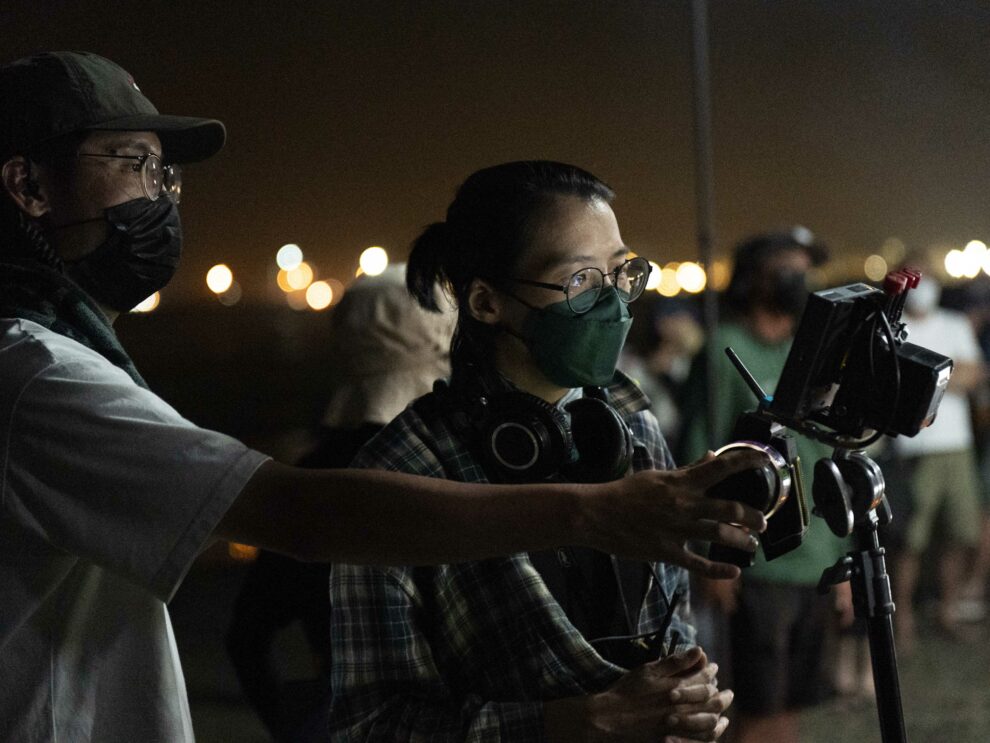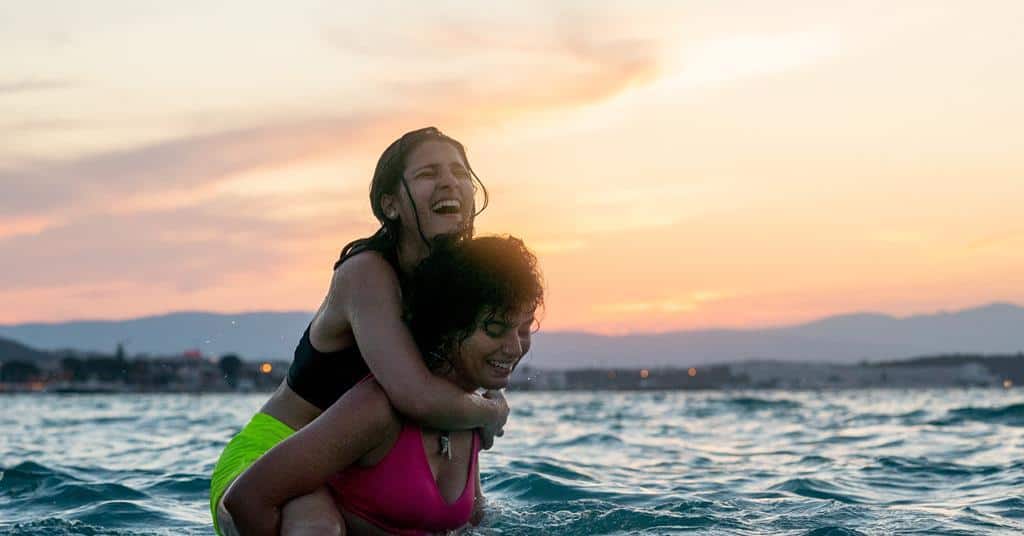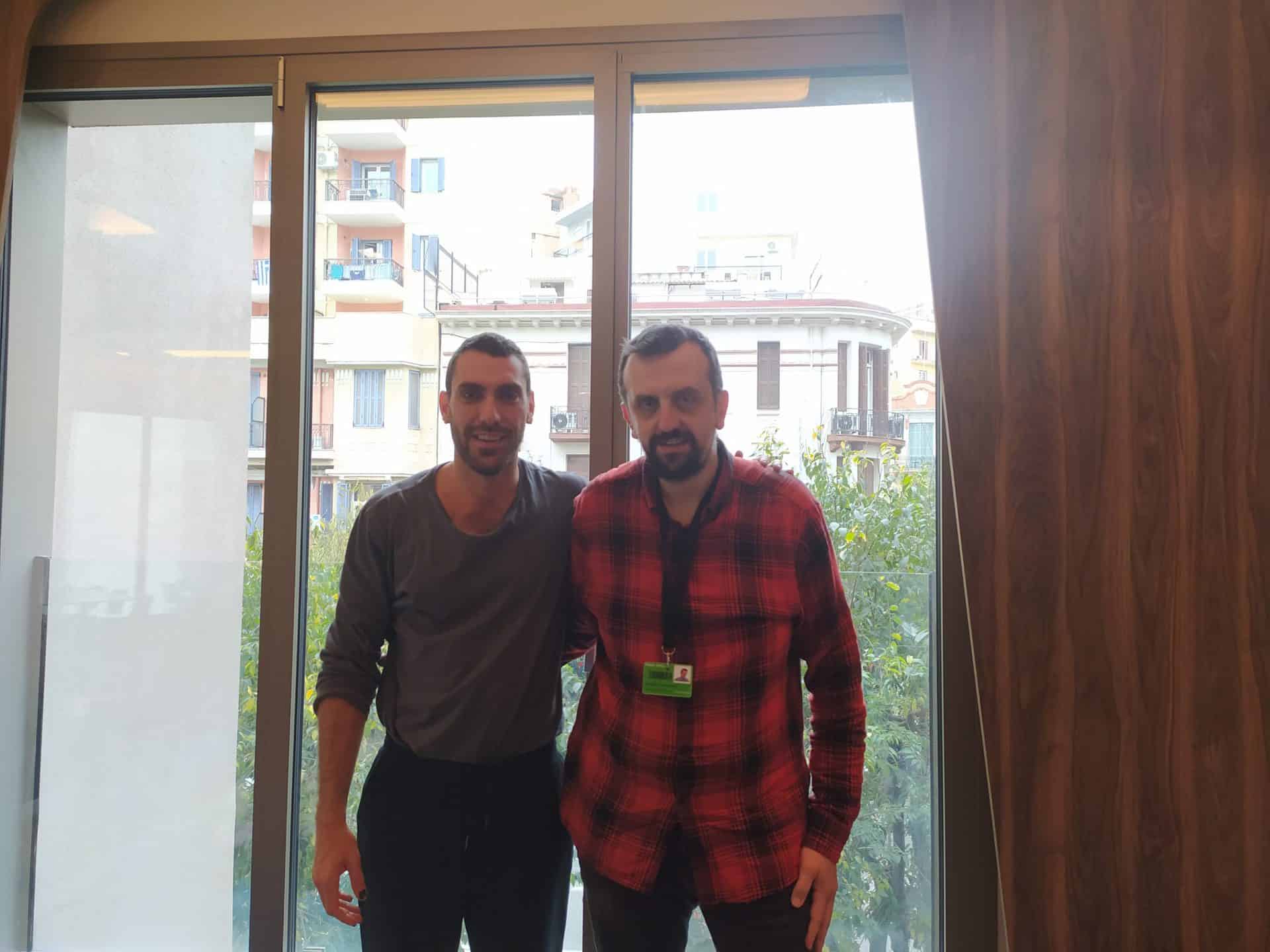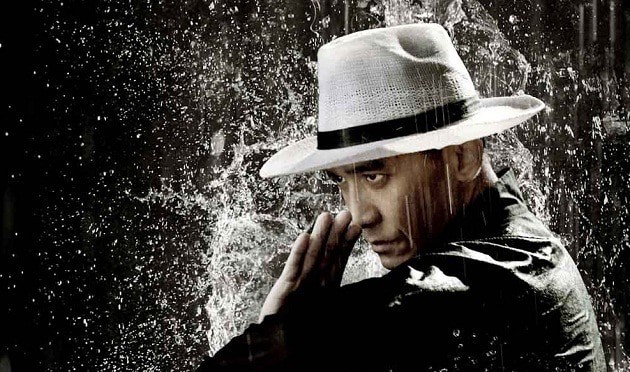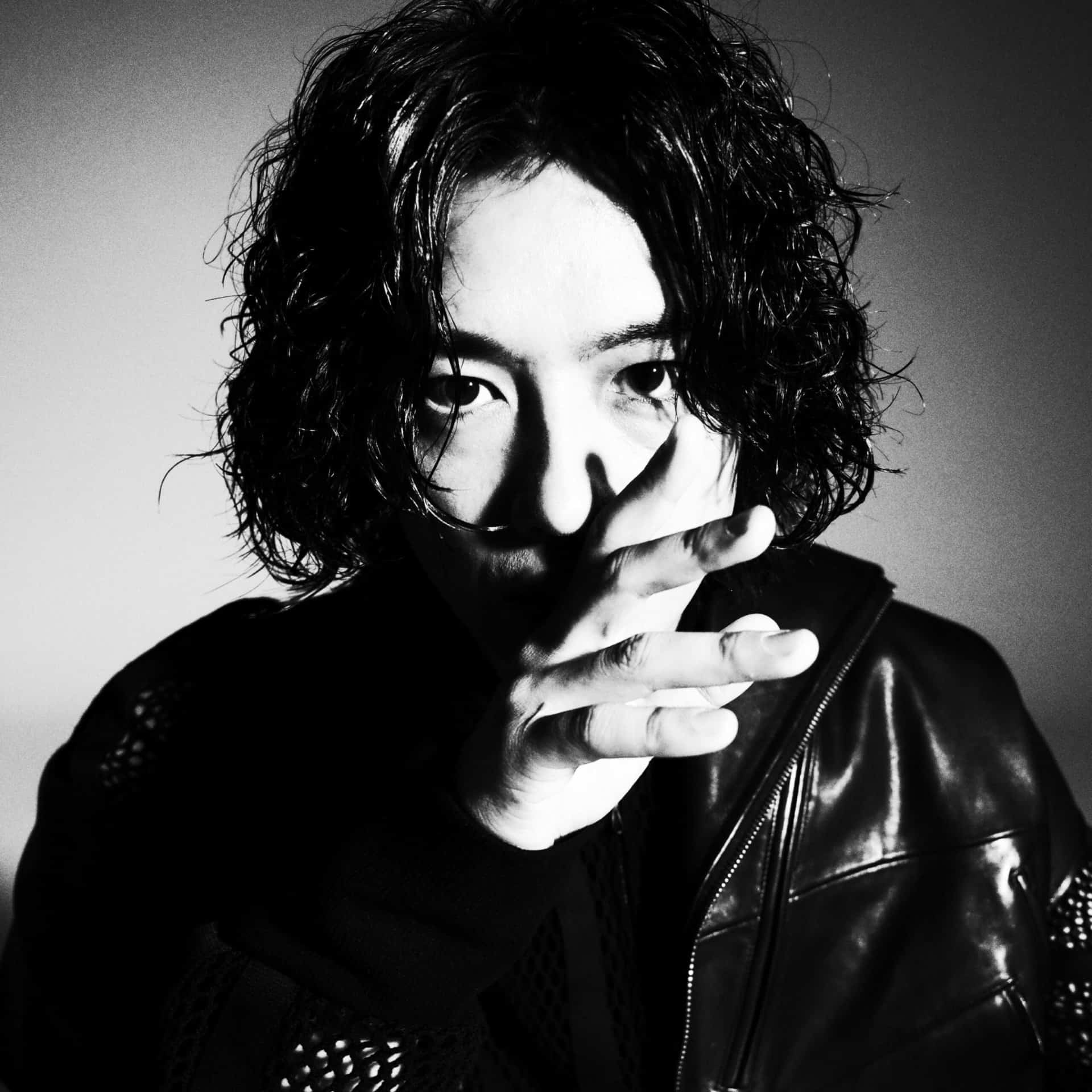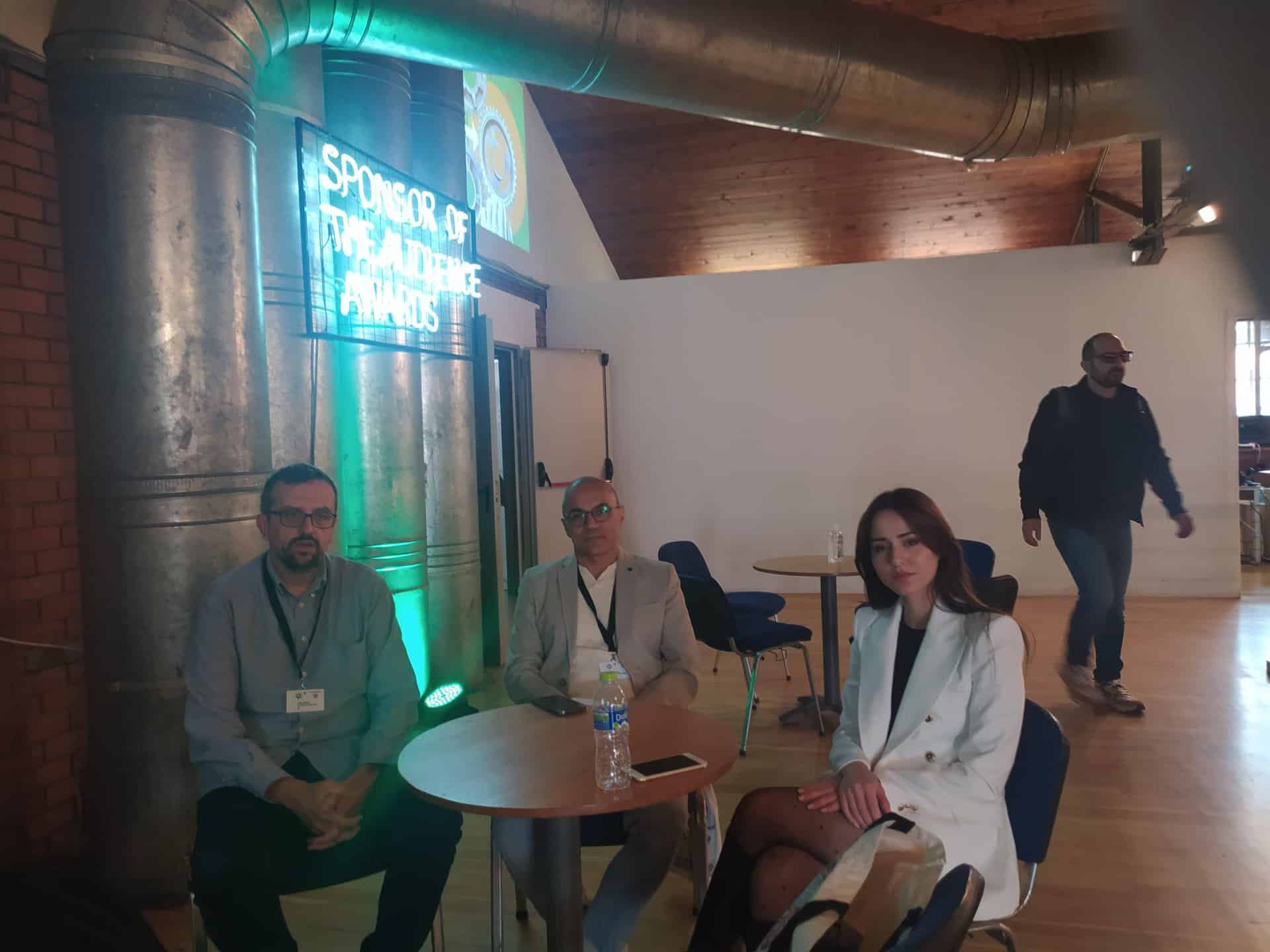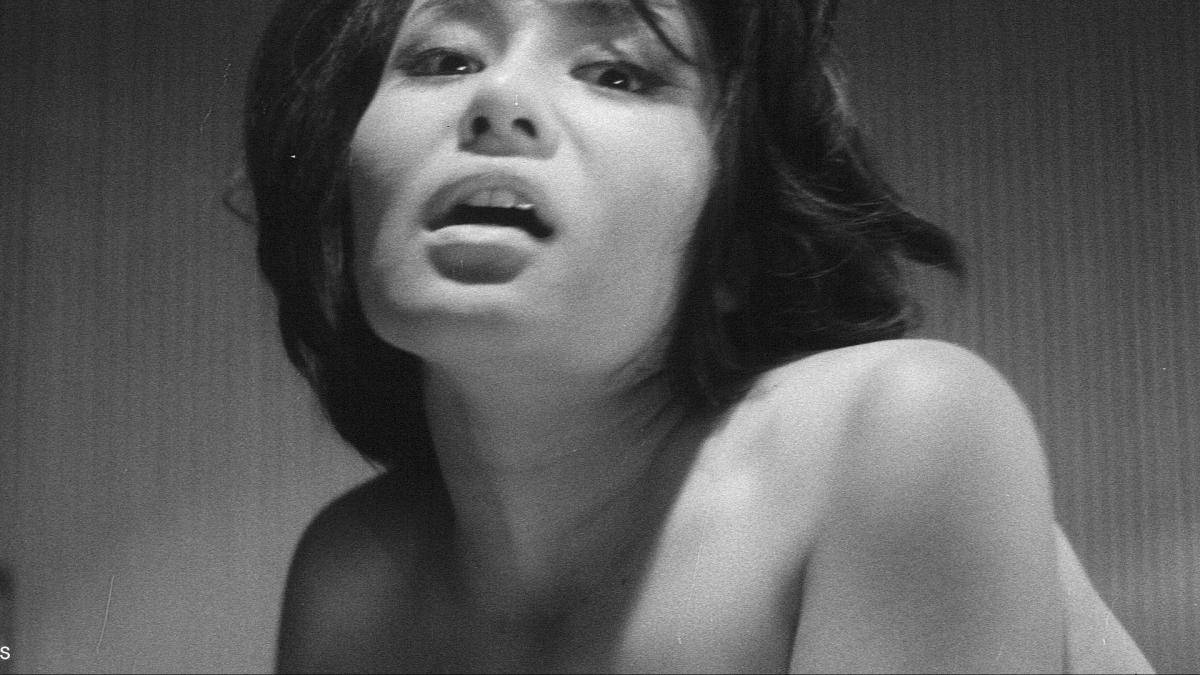Su I-Hsuan is a Taipei-based writer and director. Her 2018 TV Film “Where The Sun Don't Shine” won Best TV Film, Best Lead Actor, and New Actor in the 2018 Golden Bell Awards. Her first feature film “Who Will Stop The Rain” was selected for the 2018 Talents Tokyo, Produire au Sud workshop Taipei and the 2022 Venice Gap-Financing Market.
On the occasion of “Who'll Stop the Rain” screening in Tokyo International Film Festival, we speak with her about combining romance with politics, the current social and political situation in Taiwan, the casting, and the cinematography, the erotic scenes, and other topics.
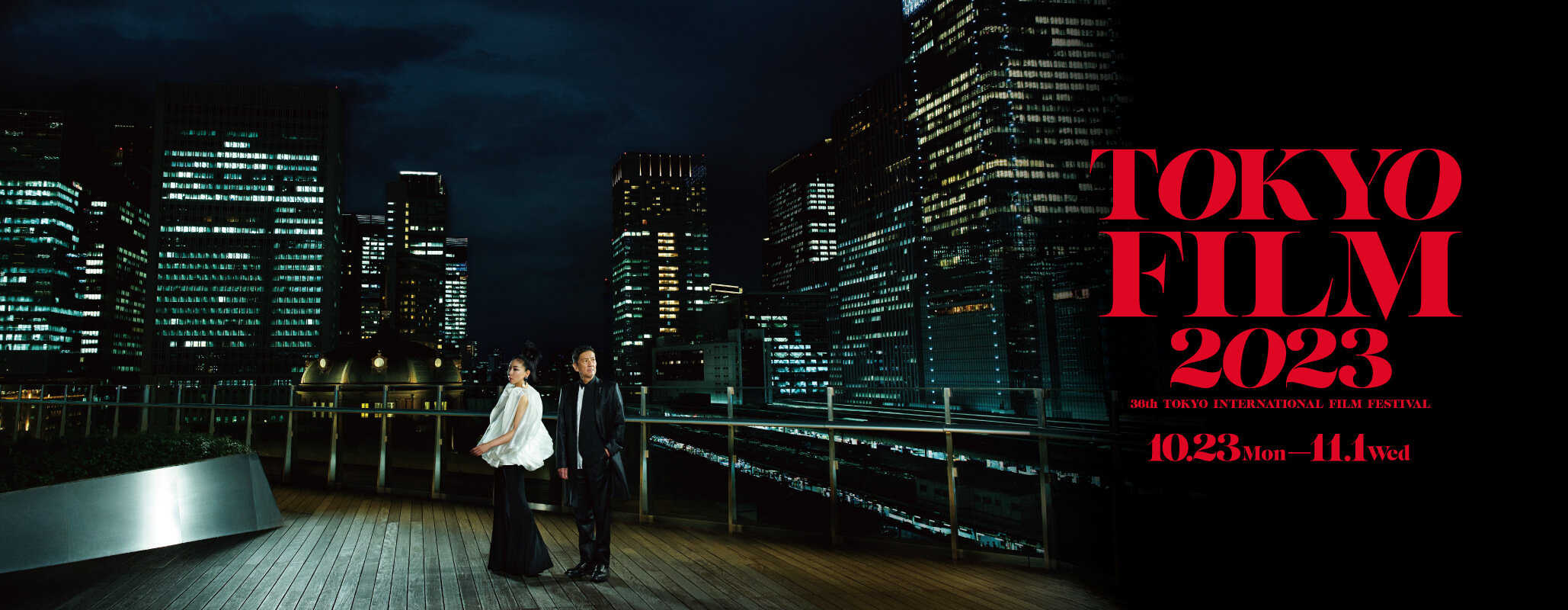
How was the reception of the film in Tokyo?
I think the Japanese and Taiwanese cultures are different. I found that the Japanese audience enjoyed our film and understood our culture, particularly the most important points, about LGBT issues, even though in Taiwan, these issues are quite open and not so much in Japan. The feedback of the audience was nice, which, for me, was a surprise considering what I just mentioned. Furthermore, in Tokyo, we met a lot of Hong Kong audience and after the screening they came to me and said thank you for the film, which was a kind of encouragement for me.
Why did you choose to focus your story on the particular strike in the art school?
During the 90s in Taiwan, we had a lot of strikes for political reasons. The particular strike however, was not for political demands, but more about creative freedom for the artists and the students. I think this creative freedom is connected to the creators' character and emotions, and I think it resembles love, so I made a connection between this strike and the love stories in the film.
Do you think that things have changed nowadays, particular in art schools in Taiwan?
In Taiwan, we follow Confucianism, and we feel we have to obey our parents, our bosses, our teachers, therefore we still have some situations like the one presented in the movie, especially in the field of arts. If you have connections with people of authority, your path will be easier, you get more opportunities. There is this kind of nepotism, many people rely on their connections, something that also extends to the filmmaking industry. That is why I wrote this story because we still have situations like this. There are still confines, maybe not so obvious, but in a more subtle way.
Would you say that the White Terror Taiwan experienced is in the past? Have people recovered?
The White Terror lasted for more than 30 years and people like my parents lived throughout it. I think that now, even if we are free, the previous generation will still say things like, “Stay away from politics, it is dangerous”. So for me, White Terror has ended, but previous generations are still self-censoring and they need more time to get over it completely.
So, do you feel afraid sometimes, after what your parents told you, to speak out about political issues?
Right now we face other issues, like the one with China, which is a totally different situation but also similar in a way. China is a big authority and a big market, and Taiwanese movies frequently sell there, but if the movie talks about strikes or LGBT issues, there is a chance that the movie will not sell in China. Me, however, I will follow my heart, I will choose my way, also because I think Taiwan is the only democratic country in the Chinese speaking world. If we don't speak about issues like that in our movies, no one will.
Check also this article
Why did you decide to include a romantic element in the film, and why make it a lesbian one?
In the 80s, we had martial law, which was done, though, in the 1990s, when the story of the film takes place. However, sexual oriented issues were still dealt with conservatism, people could not be open about their sexual identities. Creative freedom is also like sexual orientation, in that it could be directed from your desires, your inner feelings, and that is what I wanted to explore in the film. I also believe that creativity is about honesty, a reflection of the creative essence and identity. And my idea was to merge the concept with love, because I also believe that love is about honesty.
How would you describe the three main characters of the story, Ching, Kuang and Chi-wei?
For me, the three characters are different in what they pursue, what they chase. Chi-wei is chasing a change, she wants artistic freedom for everyone. Ching is chasing love, and wants men and women to love her. Kuang is chasing power, he wants to control everything and maybe become another man of authority in the future.
Which one of them is like you the most?
All characters are like me, but different versions of me, different percent of me. Chi-wei 30%, Ching 15-20% and Kuang the least. I would like to live like Chi-wei, she is more free and more direct than the rest.
Can you tell me a bit about Ching's father? I thought that his presence is actually a metaphor for various institutions of Taiwanese society.
Yes, you are right. Ching's father has political connections, connections with one of the biggest party, and is essentially a metaphor for patriarchy. He wants to control everything, he is like a big boss.
Same question about the Chair of the Art School.
He is inspired by real people and he is conservative. Maybe when he was young, he tried something different, but in the end he just obeyed the system, he found a way to survive. For him, following the system was an easier way to survive. He is a man who just follows society's rules, like most people actually.
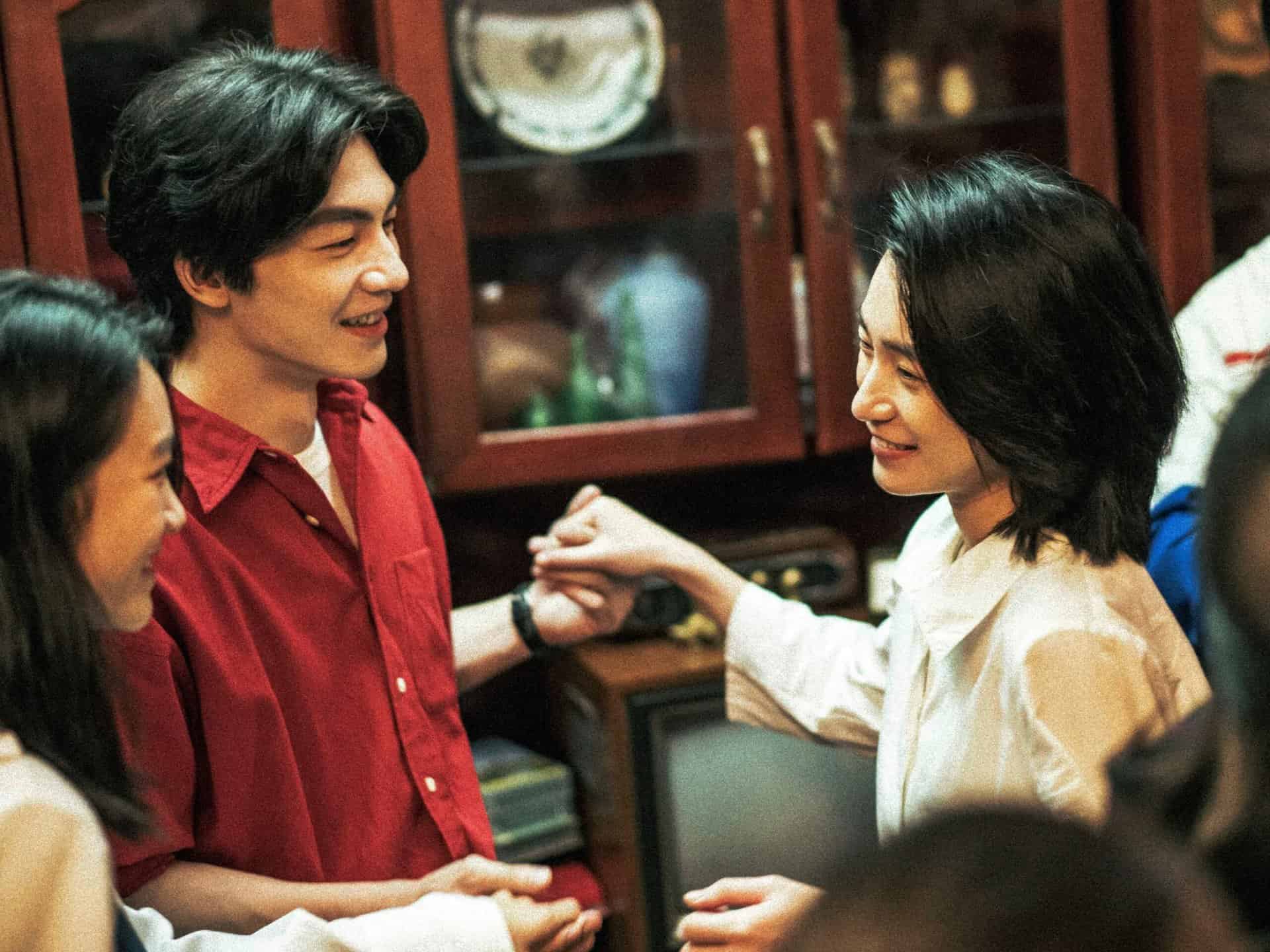
Can you give us some details about the casting?
I have collaborated before with Lily Lee, in “Detention” so I knew her character and her acting habits. So when I wrote the character of Chi-wei, I thought that she could play the role. Ching's casting, however, was different, since she has a very special personality, she is not sweet, she is tough, she is difficult. So I checked a lot of young actresses in Taiwan and I found a photo of Yeh Hsiao-fei and the feeling of the photo was just like how I imagined Ching. Then I tried to bring the two actresses together and create some chemistry between them. Roy Chang as Kuang was the last one I found, as I wanted him to complete the triangle.
Can you give us some details about the cinematography? In general, what was your purpose in the visual aspect of the movie
In the beginning, I discussed with my DP briefly, because we have cooperated before and we know each other well. When we started discussing the image tone, he told me he wanted to use flat ratio, because during the 90s, the ratio was flat. But the most important reason I chose this ratio is because you can focus more on the emotions of the actors and their performance, and these emotions are actually the focus of my film. For the color tone, we wanted to use bluish hues and in general, melancholic tones. We also used high ISO to avoid the sharpness of the image, not in a very digital-era way. And we also would have a little noise on the screen just like how it was with film. The whole movie is shot with handheld cameras, which is a very unusual way to shoot in Taiwan, because we wanted to create a feeling of imbalance and restlessness. In general, I wanted to avoid any unnecessary scenes, in order to focus on the actors.
What about the erotic scenes? Were they difficult to shoot?
Just like action scenes. We had some rehearsals before, telling the actors what they needed to do, and then during shooting, just like in action scenes, the camera would follow the actors. For the technical aspect, the whole thing was well prepared, but on the other side, to create this scene is also another kind of nakedness for the director.
So, was it difficult for the actors?
Because of Covid, the shooting was delayed, so the two actresses had more time to get to know each other, go for drinks for example, and in general, have more preparation so they felt quite safe when they were shooting these scenes together. However, some movements or poses were difficult and for them it was difficult to retain the pose for some time, in order to meet the camera movement. I would not say it was too difficult for them though.
What is your opinion of the Taiwanese movie industry at the moment?
(laughter) This is a difficult question. I think lately Taiwanese movies have made much progress but we do not have many female directors. So it is rare to find the female perspective in local titles. I have been thinking why this happens, and maybe it is a structural issue. I hope there will be more female directors in the future.
Are you working on any new projects?
I have several projects in my mind but I need time to develop them. One is also a romance film but will explore love through a very different character perspective, actually the two different point of views of the protagonists regarding the relationship. The other will be a story about a woman or a girl who experiences the Sunflower Student Movement in Taiwan, which happened in 2014.
So I guess these are your two favorite subjects, right? Love and politics.
(laughter) Maybe love is political


